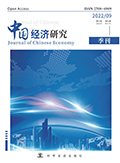

在天津论坛2023国际论坛“人工智能和科技创新范式变革”分论坛上, 与会国内外学者对人工智能对科学研究范式的影响进行了深刻讨论。随着新科技革命和产业变革深入发展, 新一代人工智能技术的研发和应用不断取得突破, 不仅推动着物质生产力变革, 也逐渐成为提升知识生产力的重要引擎。自AI for Science的概念诞生后, 人工智能对知识生产具备巨大的赋能能力成为学术界普遍接受的显命题。人工智能技术不断向科研领域广泛渗透, 为科研工作注入了新元素、新动能, 对科研效率提升和范式变革形成显著催化作用。人工智能驱动的科学研究已成为全球人工智能应用的新前沿。然而, 人工智能在引发社会科学研究范式变革的同时, 它所带来的数据安全、 伦理道德和价值对齐问题需要引起社科界的关注。与会学者普遍认为, 在对人工智能技术赋能科学研究的监管过程中, 应当考虑不同学科、不同环节的特殊性, 综合利用合理的风险划分机制、平台支撑机制、共同参与机制, 实现对AI for Science的审慎性、敏捷性、全周期监管。
In the sub-forum “Transformation of Artificial Intelligence and Paradigm in Science and Technology Innovation” of Tianjin Forum 2023, scholars from both China and abroad discussed the impact of artificial intelligence. With the deepening development of the new technological revolution and industrial transformation, new-generation artificial intelligence technology is continuously making breakthroughs in research and application. AI not only promotes the transformation of material productivity, but also gradually emerges as a critical engine for enhancing the knowledge productivity. Since the emergence of the concept of "AI for Science", it has become an obvious proposition generally accepted by the academic community for its tremendous enabling capabilities for knowledge production. Artificial intelligence technology continues to achieve breakthroughs and gain widespread infiltration into the scientific research field, introducing new elements and momentum into scientific research and significantly catalyzing the enhancement of scientific research efficiency and paradigm shifts. AI-driven scientific research has become a new frontier in the global application of artificial intelligence. However, as artificial intelligence triggers paradigm shifts in social science research, the issues of data security, ethics, and value alignment that it brings about need to draw attention from the social science community. Scholars participating in the forum generally concurred that, in regulating the enabling role of AI in scientific research, it is imperative to take into account the specificities of various disciplines and stages, and comprehensively reasonable rational risk allocation mechanisms, platform. support mechanisms, and collaborative participation frameworks to achieve prudent, agile, and full lifecycle regulation of AI for Science.